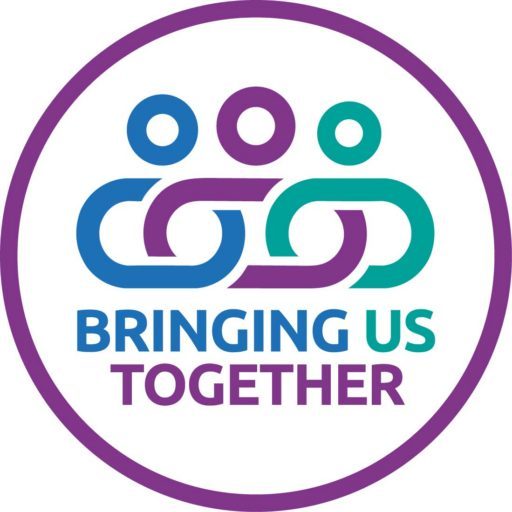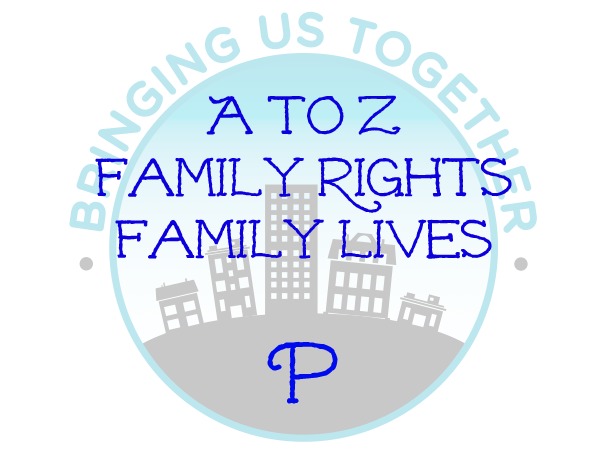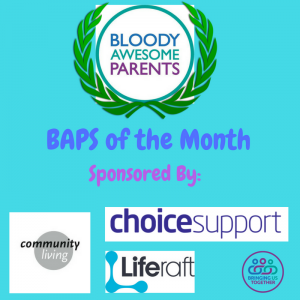A: A to Z of Family Rights and Lives
Over the years there have been many agendas that have brought about change, many families involved all over the country really working hard to make a difference. We applaud the energy and commitment from many people, from parent support groups, forums, pracitioners and organisations. We know, however, that we still have a lot of progress to make and some families and disabled people feel we are moving backwards. We don’t claim to know the answer, we just know that together we are better and sharing our learning, experiences and knowledge has to be of benefit.
When we ran our workshop in July, it became apparent that many parents face the same challenges and hurdles. It’s a national issue, not a local one. We have decided to share the challenges with you as an A to Z of our lives How many can you relate to?
 A is for:
A is for:
Acceptance – It is our children and young people’s right to be accepted for who they are and for society to see them above and beyond their impairment. We want our young people to be accepted beyond their label and for people to see the real person. This is just one aspect of acceptance.
As we go through our journey learning and accepting our young people’s disability we bring them up and teach them the difference between good support and poor support. There is also the heart breaking acceptance we start to practice as we become experienced in this world. Acceptance of the unacceptable. Sara wrote about this in My Daft Life and to this day, it is probably the post we quote the most. It is a must read.
Accessibility – Meeting the minimal requirements in the Equality Act 2010 is often not good enough. “We have a ramp, aren’t we great? Now unfortunately we don’t have space for your wheelchair to get around the venue, our door handles are all a bit high but don’t worry, you just have to ask for help or bring someone with you.” So many venues believe they are accessible because they have a ramp and a disabled loo. Or the cinema that believes because it offers headphones with audio description for your child, everything is great but the headphones are old, they crackle and fizz, the staff don’t know how to change the batteries and so you end up with a child in hysterics. But hey, they tried so let’s give them a round of applause.
What about being truly accessible for children or young people with a learning disability? Let’s get involved in family and disabled led organisations working on accessibility such as Changing Places, Attitude is Everything, Euans Guide, Accessible Derbyshire, Rough Guide, Tourism for All and Visits Unlimited. We know there are many more, share a link in the comments below if you are involved in any.
Accountability – Something that doesn’t seem to exist. So many stories – Winterbourne View, Justice for LB, Justice for Nico – show a total lack of accountability. So many families having to go to Tribunal because their Local Authority doesn’t comply with the Law. There needs to be accountability and this needs to involve families. We don’t do this for a living, we live it and that brings a whole different perspective. We need to be not just at the table for breakfast but setting the agenda and leading the meeting. We are fed up of being an afterthought or an add-on to tick boxes.
Anger – As parents, this is often our primary emotion. We are not angry with our child/young person’s diagnosis, we are angry with the ineffective, archaic system that they are supposed to fit in to. A system that appears to benefit providers more than the people needing the service.
We are angry when services don’t learn from their mistakes and when we don’t have the energy to complain. We are told to teach our children that there are consequences to their actions but then we have to say “oh but that doesn’t apply to everyone”.
We are angry when a service isn’t fit for purpose because there have been huge cuts and staff who are left are running ragged. But nothing else is offered. We are angry when the rights of our child and young person are not even considered. We are angry that there is a multitude of legislation to supposedly keep our child safe, ensure they have a voice, ensure they have rights and ensure they have the same opportunities as their peers but somehow none of this seems to matter. Channelled well we can turn our anger into passion that becomes the driver for change and making a difference.
Appointments – After appointment, after appointment, after appointment. Appointments come into a few categories.
- The appointment you have to wait for months/years on end before getting through those doors – I swear there are days when I think my husband has more chance of getting to the top of the season ticket wait list at Anfield before I get to see this person with my child. You know the one I mean, the one where you start to believe that this service may just be an urban myth.
- The one where it is just ticking a box – “oh dear, we haven’t seen your child/young person for 12 months and we have to tick a box to say we have for our funding, so can you come in and we can waste an hour of each other’s time”.
- The one that actually achieves something, the one where you get the label you need just to move onto the next step of the ladder, or the one where the practitioner sees beyond the label.
- The one where you are dictated to, the one where you are told what is best and where your opinion or experience of your child is of no importance.
If appointments were all category 3, then we wouldn’t mind the chaos of organising childcare for other children, driving around the hospital car park for 2 hours before finding a space, paying to take cash from the ATM in the hospital because the clinic was running late so the parking will cost more than expected or any of the other aspects of attending appointments we have to deal with. Sadly category 3 appointments are not very common.
Arrogance – There is most certainly a place for experts and academics, they bring an essential service to the table and often they are the people who provide us with the research and backing we need to make any changes. However, when that expert is not prepared to continue their own learning by listening to others then we have a problem. Many of us have met some amazing academics with no experience personally of raising a child with a disability but they recognised that this was something they couldn’t bring to the table and they needed other people on board who could. Many of us have however, met some amazingly arrogant self-labelled experts – the ones who believe their own hype. These people exist in the statutory services but also, sadly, in the voluntary sector. This week has seen some shocking arrogance from the voluntary sector, an example that shows a real lack of actual understanding of what our families need or want. The sad thing is none of us are shocked by this, we are just angry.
 Aspirations – We meet families all over the country and they come in all shapes, sizes, backgrounds and cultures.
Aspirations – We meet families all over the country and they come in all shapes, sizes, backgrounds and cultures.
We know that being a parent of a disabled child is a tough job. Some of us are too tired and knackered to have aspirations, we may never have met a disabled person and we have our own preconceived ideas. We may never even had aspirations for ourselves.
We are, too often, unaware of our rights and our journey is blocked by others telling us either to be realistic or “this is how it’s always been done” and so leaving us to decide if this is a battle we have to fight. If we hear negativity and a medical model approach in the first few years and we continue to hear it we find it a struggle to think of a positive future. How we feel about our children and how the practitioners and services feel about them impacts how our children and young people feel about their own aspirations. Let’s teach our children and young people about their rights and let them aim high!
Ass – Unfortunately, there are far too many of these in this world and so many of them don’t even realise it! Sadly it is often the Asses that make it into powerful positions who take away our control by controlling us. We could write a whole post on this but we are sure you all read the word and a few people came to mind immediately.
Assessment – Core Assessments, Educational Assessments, Development Assessments, Resource Allocation Assessments. Don’t you just love that word??
We need to “assess” your child,young person or my personal favourite, we need to “assess” your/their needs. Now if assessments were carried out without the “budget” also having to be assessed, life would be much better. If assessments led to Action, or even better, if assessments led to immediate Action, it wouldn’t be such a useless word.
If you didn’t know that also sitting in that room with you was the budget (or lack thereof) or if you didn’t attend assessments where it became apparent that decisions had been made before the meeting (to save time) then maybe assessments would be a worthwhile activity for all but let’s be honest, how many assessments have you been involved in that didn’t lead to any improvements for you or your child/young person but certainly ticked a box for someone?
Attitude – Disabled people tell us that negative attitudes are the biggest barrier to their lives.
Attitudes are learned and are deeply imbedded into the culture around disability and impairment. Disabled children are still denied their basic right to a good education. Disabled adults are still denied basic human rights, like equal healthcare and job opportunities. We hear negative and offensive terms being used to describe disabled children, young people, adults and us, as family members, every day.
The definition of attitude is “the way a person views something or tends to behave towards it, often in an evaluative way”. If you meet a practitioner with a “can do” attitude or a local authority officer who sees the child and not the label, life becomes much easier. However, if you meet a practitioner who has a “not my job” attitude or a local authority officer with their beloved checklist, then life becomes a battle. If you are shopping and chaos kicks in, then the way others behave towards you will mean the difference between you arriving back home in tears or with a hopeful smile.
“Attitude is the real disability” is a phrase you will often hear and it is true. Our biggest challenge is to change the public perception of disability and raise awareness so that there is greater understanding of how wonderful our young people are! Positive attitudes will keep our young people within their communities, safe, happy, with purposeful lives as equal citizens.
A great post about Public Attitudes toward disability can be found on Patient Centers website.
Austerity – As you sit and read about the cuts to services, budgets etc, how often do you think “give me a few days with your budget and I could make it go further and I would also provide what people actually need?” When you read that the “bonus” for a company to have a young person in their residential care often exceeds £3k a week but you know that the cost of having that young person in their own community with appropriate support would cost so much less, you have to wonder who is benefitting from the system. In times of austerity, the one thing often missing is common sense.
What have we missed?
We’d love to hear the “A” you think we should have included.
Over the Summer we will be sharing our A to Z of Our Lives. Feel free to email “debs@bringingustogether.org.uk” with any suggestions for the rest of the alphabet.
What do Families say about Our Lives
You can also find resources, recommended by families, over on our Family Rights, Citizenship and Mental Capacity Act resource page.
Mum to three great kids, each with a different SEN.
Transplanted from the NW to the SE.
Co-founder and Director of Bringing Us Together









